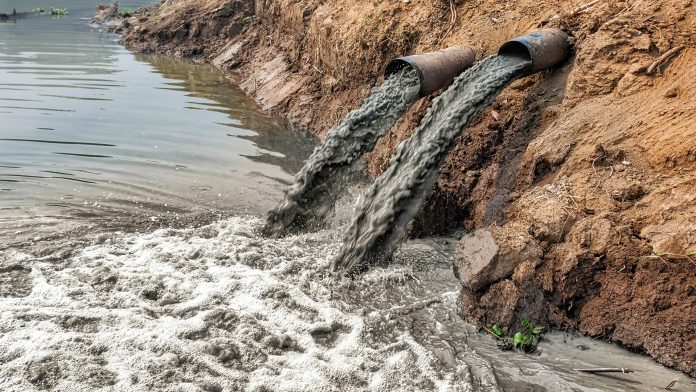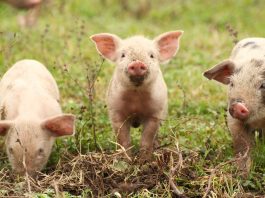The UK government are to offer farmers further advice, support, and funding to facilitate tackling the challenge of water pollution.
It has been revealed today (August 2, 2021) that farmers around the UK will be provided with supplementary funding to act on the challenges of air and water pollution from their land.
Tackling water pollution
Over the last decade and a half, the Catchment Sensitive Farming (CSF) programme has been one of the core approaches to aiding farmers in their efforts to tackle water pollution, which occurs as a consequence of manure, fertiliser, and soil running off into rivers as it rains.
The CSF programme is run by the joint efforts of Natural England and the Environment Agency and offers complimentary 1-2-1 guidance to farmers in order to assist them in reducing water and air pollution through management of farmyard manure and soils, amongst other factors.
The triumph of the programme has indicated that farmers have a significant part to play in protecting the environment; in recent years, it has decreased the quantity of severe water pollution events by almost a fifth, and assisted farmers in gaining access to £100m in grants.
Further funding for farmers
The funding for the programme will now be nearly doubled, with a further £17m available over the upcoming three years, with the new annual budget being a staggering £30m, up from £16.6m in 2020 and 2021.
This will entail 100% of England’s farmland being covered, up from 40% of its current coverage, with every farmer in the country being able to receive advice and support by March 2023 in order to facilitate their access to a variety of answers to lessen pollution.
This further £17m in funding will be used to provide a greater number of Natural England advisors to aid farmers executing practical solutions to lessen pollution, such as planting new grassland buffer strips to enhance drainage, establishing riverside trees to decrease runoff into rivers, and utilising improved slurry storage facilities to evade unintentional spillage.
The teams from Natural England will also assist farmers in applying for grants to finance advanced equipment and technology, including precision farming tools that decrease the use of fertilisers and offer greater protection to the soil.
This announcement by the government sits alongside other steps being taken to tackle water pollution, such as new legislation in the Environment Bill to decrease the use of storm overflows and £144m of new, supplementary investment from water companies on storm overflows within the current five-year planning period (2020 – 2025).
Environment Secretary George Eustice said: “Catchment Sensitive Farming has been hugely successful in tackling water pollution, giving farmers practical advice tailored to their own land and grants to support the investment in infrastructure that protects watercourses.
“There are currently around 40% of farmers involved in the scheme, but today we are doubling the funding available and we aim to have every farmer in the country taking part by 2023.”
Henry Pym, a farmer engaged with the programme from Higher Blindmoor Farm in Somerset, added: “The advice from the Catchment Sensitive Farming programme and the Environment Agency has helped us better understand how to improve the water, soil and air quality around the farm. Alongside the support of CSF grants, we have been able to carry out the necessary improvements to make our practices more environmentally sustainable for the future.
“For example, herbal leys have been a real bonus as they are not only very environmentally beneficial, but also have agricultural benefits from increased intakes due to their diverse species. The herbal leys receive no artificial fertiliser, which is a win-win for the farm and the environment!”
Marian Spain, Chief Executive of Natural England, commented: “Farmers and landowners have an important role in ensuring our watercourses are protected from pollution and in improving the quality of our rivers and wetlands as part of nature’s recovery. Cleaner, more wildlife-rich water is vital to restore lost biodiversity and ensure people can enjoy our precious rivers, streams and ponds.
“With the expansion of the Catchment Sensitive Farming partnership to cover 100% of farmed land, all farmers can now go further than ever in reducing diffuse water pollution by seeking technical advice and grant support to create a healthy water environment as part of a sustainable farming business.”
Additionally, Defra has revealed that it will distribute the £1.2m from the Environment Agency to substantially boost the number of inspectors visiting farmers to lessen diffuse water pollution, with 50 additional full-time employees recruited for inspections.
Sir James Bevan, Chief Executive of the Environment Agency, concluded: “Over the last 25 years there has been huge progress in enhancing the water environment, but there is more to do.
“The announcements made today will help us continue to engage with farmers to reduce the risk of pollution incidents and work towards cleaner and healthier rivers for all.
“Funding for 50 new Environment Agency inspectors is also a welcome development. We have said before that additional investment in our monitoring and inspection capability is fundamental to delivering the government’s priorities on the environment.”









